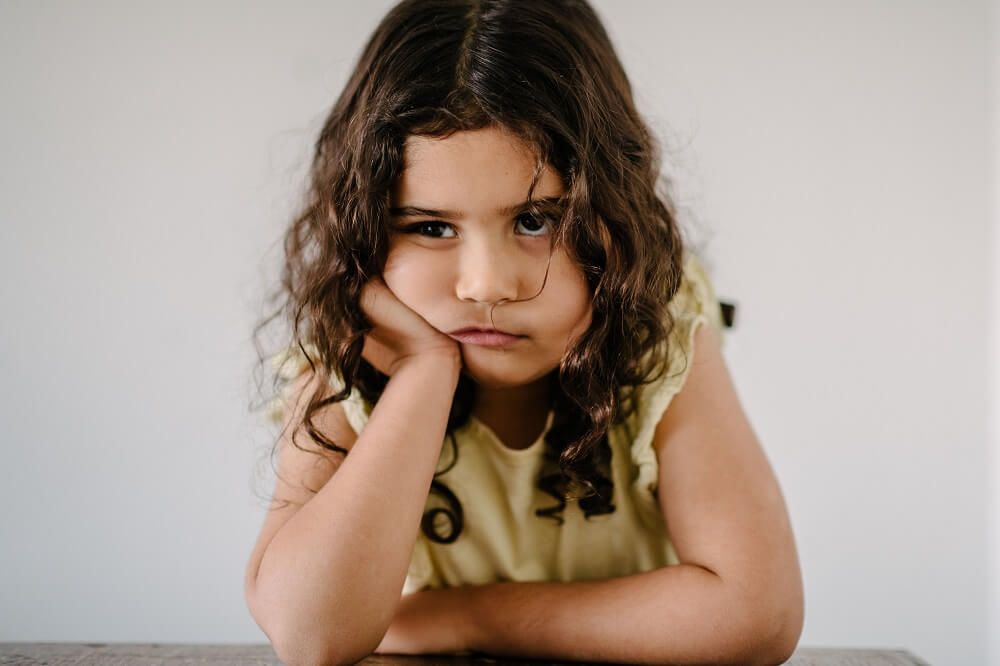How to talk to your child about depression
Key points:
- Depression among children is on the rise and affects their thinking, mood and behavior.
- A simple yet powerful thing that you can do to help your child is to talk with them about depression from an early age, in an age-appropriate way.
- There are specific signs and symptoms that you can watch for to help you spot depression in your child, and steps that you can take to support them.
No parent wants to think their child could be at risk of depression. You want your child to be happy and carefree. But the sobering reality is children can be diagnosed with a depressive disorder as young as 3 years old.
There is, however, a simple yet powerful thing you can do to help your child: talk with them about depression. In this article, we’ll walk through why it’s important to talk about depression from an early age, how to have an age-appropriate conversation with your child, and what to do if your child shows signs of depression.
What depression is (and what it isn’t)
Depression, also known as major depressive disorder or MDD, is a diagnosable mental health condition that affects a child’s thinking, mood and behavior. To be clear, depression is not the same as feeling sad or having ‘the blues.’ With depression, symptoms occur nearly every day and last for two weeks or more.
Symptoms and signs of depression in children and teens
Children of almost any age can experience worry, low mood or depression. However, it’s generally more common among older children.
When it comes to depression, there are a few specific signs and symptoms to watch for to help you to spot depression in children – specifically, if they:
- Feel sad, empty, hopeless most days
- Seem more irritable or more easily upset than usual
- Withdraw from friends or favourite activities
- Experience a noticeable increase or decrease in weight or appetite
- Have difficulty sleeping (or sleeping more than normal)
- Seem unusually fatigued or agitated
- Express feelings of worthlessness or inappropriate guilt
- Have unusual difficulty thinking or concentrating
- Have thoughts of death or suicide
- Have thoughts about or engage in acts of self-harm

Why it’s important to talk about depression with your child
To put it simply, depression among children and youth is on the rise.
A global analysis including more than two dozen studies found the rate of depression symptoms in kids nearly doubled during the COVID-19 pandemic – from around 1 in 8 kids in January 2020 to 1 in 4 barely more than a year later. This includes roughly 2.7 million children in the US ages 3 to 17 who’ve been diagnosed with depression.
Many parents are hesitant to talk about depression with their kids – whether it’s because of stigma around mental health, the fear that mentioning depression will somehow make things worse, or just not knowing where to start. But one of the best things you can do for your child is to start having an open, honest, age-appropriate conversation now.
There are several effective treatments for depression, and it’s important to identify it early so you can help your child get the care they need.
Talking with kids about depression: an age-by-age guide
How you approach any conversation about depression – and what you say – depends in part on your child’s age and developmental stage. While every child is different, the message you want to give is that you are available to listen and support them. They are not alone.
Here are some general guidelines by age:
Early childhood (ages 3 to 7)
- Use simple language your child can understand.
- Try to give concrete examples they can relate to, in order help your child understand the difference between sadness and depression. For example, you could ask them to think about a time they felt sad. Then explain how depression is kind of like that, but it’s when the sadness doesn’t go away.
- There are a number of helpful children’s books you could read together, too.
- At this age you can begin painting a more detailed picture of mental health. Be sure to use accurate terms – this will help take some of the stigma out of depression.
- Kids this age are likely to think they’re to blame for their depression. Or they may think they’ll get in trouble if they admit they’re struggling. Remind them depression is nothing to feel ashamed of. It’s like any other sickness: it isn’t their fault, and there are things they can try to get better.
- Teenagers are four times more likely to experience depression than younger kids. It’s important to talk regularly with your teen – and, more importantly, make sure they feel safe talking with you about it.
- As with younger kids, be sure to explain that depression is nothing to be ashamed of. It’s a common mental health condition that affects lots of people.
- Let them know that while there isn’t a cure for depression, it can be managed and treated so people can live happy, healthy lives.
- You can also talk about specific symptoms and signs of depression (see list above) and ask if your teenager has experienced any of them. (More below on what to do if they tell you they think they’re dealing with depression.)

What if your child tells you they think they have depression?
Your first impulse might be to panic – but don’t. While it can be terrifying to hear your child is struggling with depression, the fact that they’re confiding in you is good news. It means they feel safe with you, and it gives you a chance to show you’ve got their back.
Listen without judgement
Listening and acknowledging your child’s feelings is essential – it’s the only way they’ll continue to feel safe confiding in you. Try asking open-ended questions like, ‘What are some times you feel hopeless?’ or, ‘What used to feel easy that feels much harder now?’
You may need to offer gentle prompts, to help your child find the words to describe what they are feeling.
Believe them
Don’t dismiss what your child shares, under any circumstances. Take any warning signs of depression, spoken or unspoken, seriously.
Don’t reprimand them
Remember, depression is never their fault and they have not done anything wrong. Your child needs affirmation and support, not judgment.
Avoid the impulse to “fix” it
The parental urge to rush to solutions is strong. Don’t forget, your child craves your empathy and support a lot more than they need solutions or advice.
Make sure they know they’re not alone
Remind your child that lots of people experience depression, and there are plenty of treatments (therapy and medicines) that can help them feel better.
Provide emotional support
One of the best ways to do this is to spend lots of quality time with your child. Depending on your child’s age and developmental stage, it may also be appropriate to talk about your own experiences of depression, where relevant.
Encourage your child to practise self care
Gently encourage your older child or teen to do things known to improve their mood and sense of well-being. Depending on how they are feeling, it may be helpful to start small and slowly build up the level of activity you are trying to encourage. Here are just a few examples:
- Getting plenty of physical activity and outside time
- Getting plenty of sleep, if they’re able
- Eating healthy foods
- Sticking to a routine
- Writing in a journal
- Spending time with friends and family, so that they continue to feel connected to others.
Keep checking in
Continue asking open-ended questions about how they’re feeling and how you can help support them – for example, ‘How can I help you if I notice that you are tearful?’ or, ‘Would it be okay if I checked in with you every day?’
Let your child know it’s ok to talk to you about anything they’re feeling or experiencing – including thoughts of self-harm or suicide. Also be sure to encourage them to let you or another trusted adult know if things are getting worse.
Reach out to a therapist or mental health professional
Start getting your child the support they need as soon as possible. A first step may be to take your child to see their general practitioner, pediatrician, school counsellor or mental health professional. In most countries, there are online programs and mental health support lines that may be helpful.
IMPORTANT: If you believe they are in immediate danger, take them to an emergency room or contact a suicide hotline:
United States
- Suicide & Crisis Lifeline: 988
- Emergency number: 911
Canada
- Talk Suicide: 833-456-4566 (or text 45645)
- Emergency number: 911
United Kingdom
- National Suicide Prevention Helpline: 0800 689 5652
- Emergency number: 999
Australia
Lifeline: 13 11 14
Emergency number: 000
Kids helpline: 1800 55 1800
Depression can be scary, especially when it’s your kid. Remember: by talking openly with them about depression, its symptoms, signs and treatments, you’re letting them know they don’t have to struggle alone.
Want to learn more?
Movember launched Family Man to improve the confidence and mental health of dads.
Learn how to master kick-ass parenting strategies by getting started with Family Man. It’s an interactive parenting video series that's expert-backed and funded by Movember.
If research is your thing take a closer look at the evidence behind Family Man.
Or learn more before diving in.